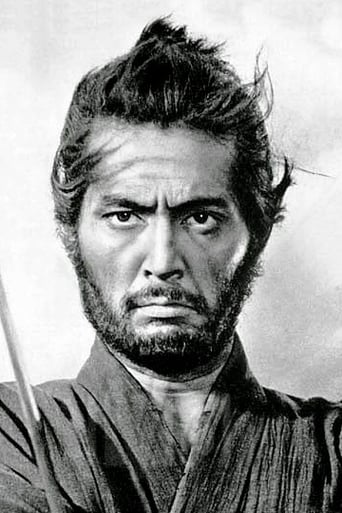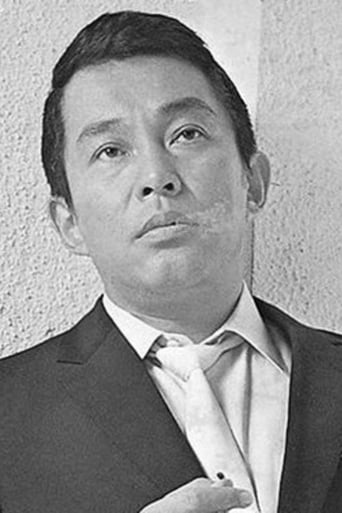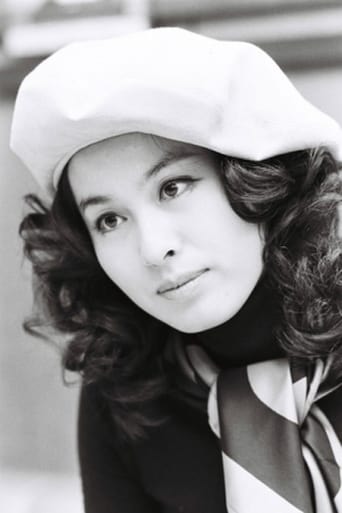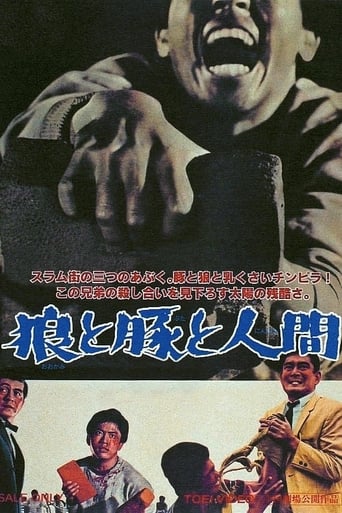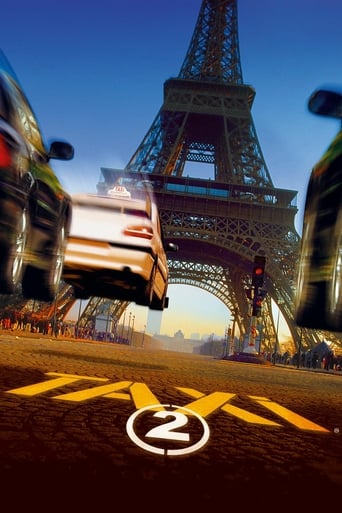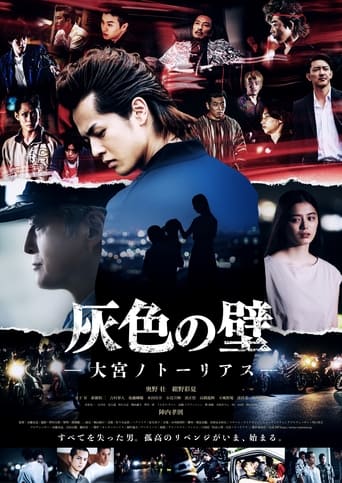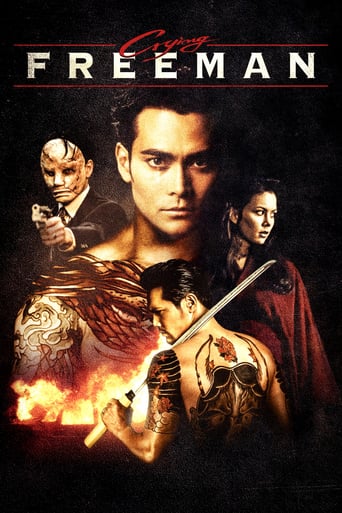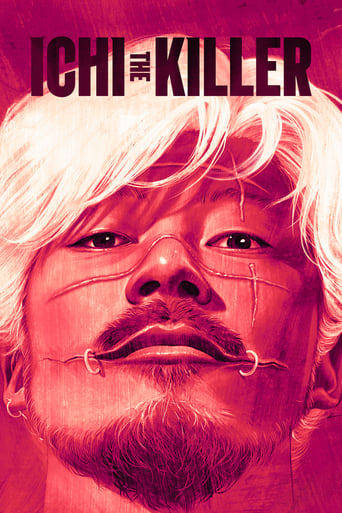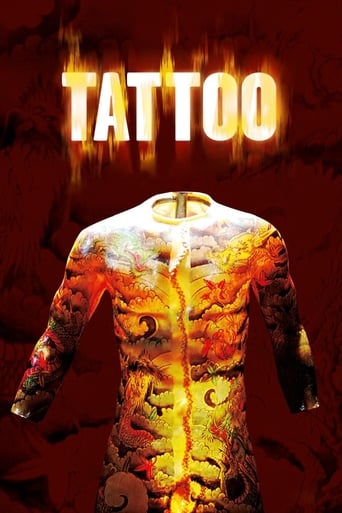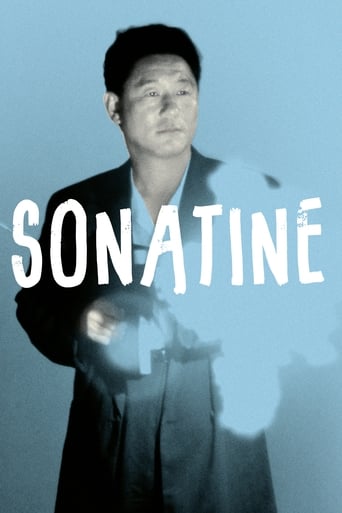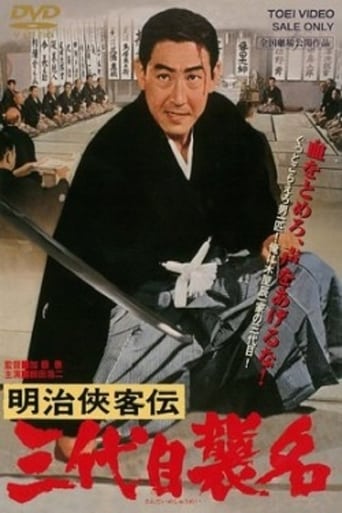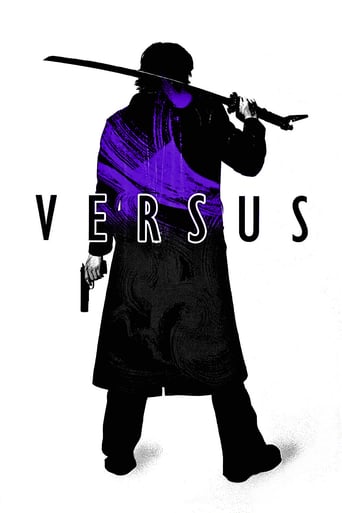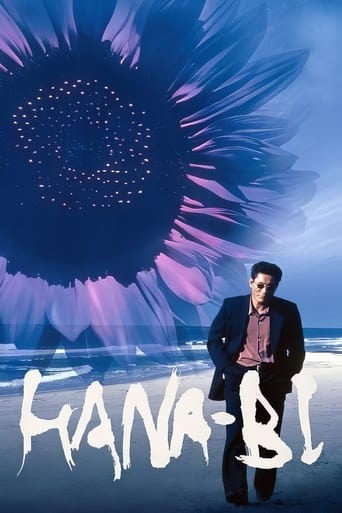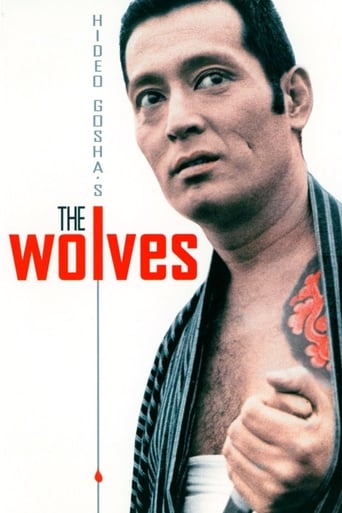
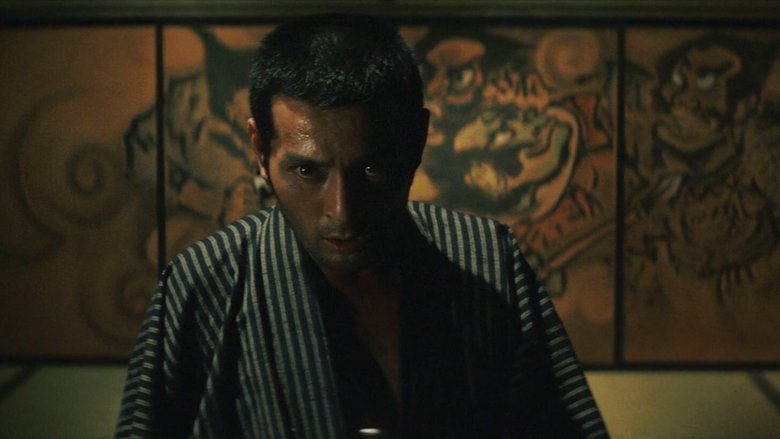
The Wolves (1971)
After going to prison for killing the boss of the Kanno gang, Seji Iwahashi (Tatsuya Nakadai) gets released early -- only to find that his former gang has merged with the Kannos. But with bitter resentments lingering on both sides, how long will it be before the bloodshed begins anew? Set in 1926 Japan, this serpentine crime thriller from director Hideo Gosha also stars Toshio Kurosawa and Isao Natsuyagi as Iwahashi's closest ally.
Watch Trailer
Cast


Similar titles
Reviews
Some critics recently have said that Hideo Gosha's samurai movies are to Kurosawa's samurai movies what Bud Boetticher's westerns are to John Ford's westerns. Maybe all that means is that Ford at the top of his game made some great movies that happened to be westerns while Boetticher at the top of his game made some first-class westerns. Shussho Iwai (The Wolves) is as well-crafted a sword-slasher as you'll hope to see, full of angst, conflict, sex and blood, with just enough artiness -- lovemaking reflected in rainwater, two silent, unexpected knife killers, a puppy on the beach, the plaintive plucking of a lonely samisen -- to keep the auteur-lovers happy. The film is an accomplished tale of tricky betrayal and fate that moves briskly along. For those who think they'll find a few flakes of gold among the pyrite, they won't be disappointed. The Kan'non-gumi and Enoki-ya are competing yakuza gangs in northern Honshu. Four years ago Seji Iwahashi (Tatsuya Nakadai) and several others were imprisoned when they took part in a bloody fight between the gangs over control of a railway being built. While he was in prison his old gang leader died. He would have been named boss, but in his absence another was chosen. They were pledged "brothers." In an amnesty at the beginning of the Showa era, he and the others have been pardoned. He rejoins his gang, makes no fuss about who is boss...and discovers that not only have the two gangs joined in an alliance, but that the young daughter of the old Enoki-ya gang leader who a good friend loves and who also was released but seems to have disappeared is just about to marry the co-gang leader from Kan'non-gumi and that, yes, his "brother," the new gang leader for Enoki-ya, is the other co- gang leader for the alliance. That's not all. There are major business interests, this being the late Twenties, that want Honshu's timber for building railways in Manchuria. Got all that? With complicated melodrama like this, it's vital how well the director keeps things moving so that we don't dwell too much on the details. So we have a tale of violent yakuza gangs in an unstable alliance, of a couple who love each other and add to the sparks of violence, and of betrayal, of power, of business interests, and of Seji Iwahashi...a brave man filled with sadness and resignation, who still is a creature of the yakuza code. "We swore to be brothers," he says. "If I can't believe in such a yakuza oath, what else is there to believe in?" In the first hour of Shussho Iwai you'll be thoroughly confused if you don't keep a chart of the various players, who is doing what and which gang they're in. The last hour, however, is quite a show of trickery, fatalism and betrayal. The climax of the movie, at what would have been the wedding ceremony, is memorable. The swordplay doesn't dominate, but there's enough to remind us how slippery all that slashing can make things. The predominate theme, however, is plain old betrayal. And those two delicate killers, by the way, add a lot of urp to the oden. If their killing of Matsu, a member of the Enoki-ya gang, doesn't do it for you, you just don't know how to enjoy a good, lengthy murder.
Like all of the other Gosha I've seen, I thoroughly enjoyed this film. This being the first yakuza film I've seen from Gosha I wasn't exactly sure what to expect. Unlike many of the yakuza films made around this time, it is longer, slower and more meditative. You can tell Gosha is quite confident and he takes his time, developing the story at his own leisurely pace. Compared to his earlier films, Three Outlaw Samurai and Sword of the Beast, the pace is much more drawn out.The plot follows Nakadai as he is released early from prison, after being put away for homicide after killing a rival boss (this all occurs within the first 10 minutes of the film, in flashback form). When he is released he finds his old yakuza world to be much different from how it used to be. However, he is very careful not to step on anyone toes and goes to extreme measures to avoid offending anyone. Unlike his intense performance in Gosha's Goyokin, he does his best to avoid any fatal mistakes. The plot itself is quite convoluted, with several of the genre's typical plot elements expertly handled by Gosha. It is worth noting that most of the action is bundled up at the beginning and the end. Those expecting nonstop action will likely be sorely disappointed.The film is well worth it for any fans of Goshas and fans of the earlier chivalry yakuza films. Nakadai gives a very good performance as always and Noboru Ando is his equal as a prisoner (formerly rival gangster) that gets released at the same time as Nakadai. I've only seen Ando in Sympathy for the Underdog and this film, and he has held his own against two great performance by Nakadai and Koji Tsuruta.
Unlike many other films by Hideo Gosha this one sort of operates as a reverse action film. The first ten minutes are the most exciting and visually active and the climax, despite the brutality on screen, is almost leisurely. Was that the intent? It's hard for me to say. The film follows the lives of several gangsters after they have been suddenly pardoned by the new Japanese government in the late 1920's. Jailed after a fatal inter-gang fight the ex-cons attempt to return to their old gangs but find everything has changed. Things don't go easy and the inevitable final conflict is set in motion.Dense with plot and gangster etiquette, this is not an easy film to jump into. Gosha's earlier samurai films are more accessible. The plot revolves around Tatsuya Nakadai's withdrawn and moody gangster but it takes detours with some of the other characters which can be confusing. The photography is dark and saturated with color. It's hard to see clearly what's happening at times but that seems to have been intentional. The fights are very realistic with nearly everyone killing each other with short knives. Not the clear stylized slashes of a samurai sword where the victim just falls over dead, these are brutal horrible deaths. The excellent music is very influenced by Morricone's western themes unfortunately including the incessant repetition of the same theme over and over (something that Morricone really didn't have control over). The pacing is slow, sometimes pretentious. At two hours it can be an effort.I saw this in the late seventies at it's New York premier and just again recently. I feel the same way about it still. You may like it but be prepared for the slow pace after the quick start.
This film is so marvellous to look at that you may wonder if Rembrandt has been re-born as a Japanese movie-director. Hideo Gosha has made an undisputable master-piece about rivalry, betrayal and the feud over a train-line. It is a classic gangster-film with a labyrinth-like plot. The Wolves is the real thing. This film is one of the best films ever made.


